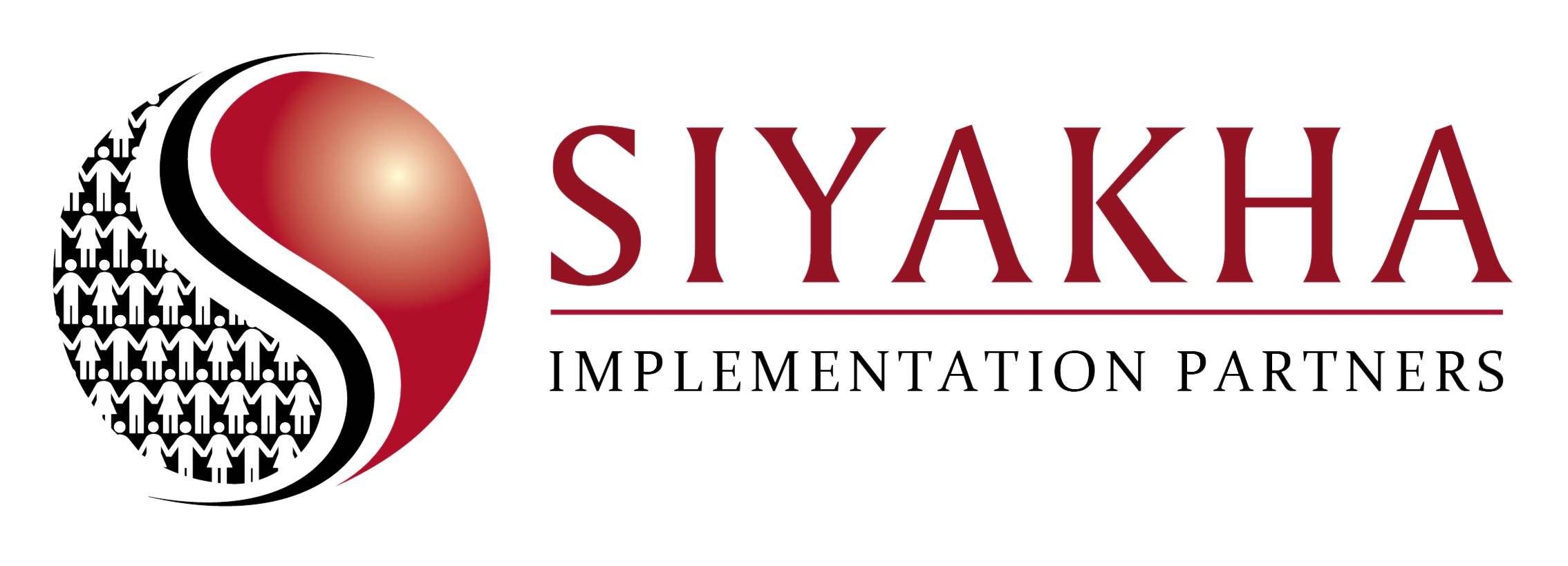The role of women in different spheres of influence cannot be overemphasized as her intuitiveness aides proper thinking when it comes to both economic and household issues.
With the spate of unemployment in Africa, the analyst has identified the role of women as catalysts of change in corporate recruitment. These and many others were outlined in an exclusive interview with Dionne Kerr, Chief Executive Officer, Siyakha Consulting South Africa. Excerpt:
In a few sentences, please describe the person of MS. DIONNE KERR.
Dionne Kerr is the founder and CEO of Siyakha Consulting for the past 18 years. She is a previous director of the British Chamber of Business in South Africa, a representative of the “Catalyst” programme, an initiative of the UK government to promote trade between SMME’s in both countries; she is the previous Chairperson of the National Association of BEE Consultants; the previous Deputy Chairperson and currently director of the Association of B-BBEE professionals; she sits on the Wisdom Board for the African Sustainability Network, she is a committee member of the Transformation Committee for the Black Business Council in South Africa; she participates actively in the media, speaks regularly at conferences both in South Africa and internationally and is a recipient of the DIVA Africa Award for her work in SMME Development.
One of your focus areas has to do with advising companies on job creation programmes. Unemployment is one of the major challenges Africa is faced with presently. Do you think these job creation programmes have had a positive impact on the African continent?
I think the extensive effort and investment has been channelled into job creation initiatives to date and there is certainly an increasing consciousness around the role we all need to play in addressing the alarming rate of youth unemployment. Whilst I think we have seen some results, I don’t believe that it is relative to the quantum of investment. However, there is also no such thing as a ‘quick win’ when addressing such an enormous strategic imperative. If we cannot stabilize consistent economic growth on the African continent, then we won’t see the resultant growth in jobs. It is not the role of a Government to create jobs, in my opinion, it is however the role of a Government to create an environment for growth and stimulate employment through policy and regulation. More investment of time and money needs to be made to co-ordinate the efforts of Labour, business, Government and donor funders to link education and training to the long-term needs of the business to create relevant skills to meet the demands of the industry.
Similarly, we need to assess our roles, as business professionals, in the achievement of a combination of things. There is no one simple solution. We need to start with educating rural and poor scholars on their career options so that they make good, well-informed and relevant career and study choices instead of following the example of their community because they will always be limited by their current environment of poverty. Being poor shouldn’t be an indictment for life. We need to rethink the notion of what a “job” is, by looking at more flexible working weeks thereby allowing learners to achieve their degree whilst working to support their family and socially and economically integrate with their peers simultaneously. We need to provide bursaries that take care of the academic, social and economic needs of learners to reduce the drop-out rate from family pressure and the inability to cover costs. We need to shift the mindset of dependency within job seekers and re-stimulate the aspirational desire and competitive spirit within Youth. We need to be a catalyst for change in corporate recruitment and retention strategies and source all sectors of society. We need to support SMME development further so that they can achieve the necessary growth to move out of a ‘subsistence’ mode and become viable enterprises. We need to create an enabling environment for informal businesses and traders. All of this will encourage innovation and self-development which is the mechanism for true empowerment.
What are some of the new approaches company owners can employ which will serve as solution to the issue of unemployment?
Einstein said that if we do the same thing again and again and expect a different result – it is the first sign of insanity. For each organisation what they should do may be different, and needs to meet the business need, but certainly, the Human Resources strategy has a significant place at the boardroom table when looking at long-term business success. Changes may include changing our recruitment methods to suit the market from which we are sourcing. We cannot use corporate recruitment methods when the skills may be placed in rural or semi-urban areas. Consideration for the investment in capacity-building rather than ‘training’ so that we develop thinking organisations that are continually learning. At every level. Every board director should be learning about the basic disruptors that will impact our business models in the next 5 – 10 years. If the way we do business will change, we cannot rely on external knowledge to influence our strategic direction – we should know enough to make good, informed decisions. A big mechanism would be for us to employ differently. 30-hour working weeks for Youth allow them to work and study simultaneously so that, on completion of their qualifications, they have 4 years of work experience and the earnings to enter the world of work. 30-hour working weeks for new parents allows them to earn, allows companies to retain their knowledge and expertise but achieves the flexibility required for this group of employees. Subject Matter Specialists can be contractually committed to mentorship across the organisation to inculcate an environment of learning and allow junior employees to grow their expertise and exposure and create an aspirational desire to grow. We need to hold our managers accountable for development and Managers themselves should be rotated on 4 – 5-year cycles to encourage innovation and reduce the risk of stagnation.
There have been assertions that African youths are largely unemployable. What is your take on this?
Nobody is unemployable. In some parts of Africa, like South Africa, we have an education system that doesn’t fulfil the needs of its country. Therefore, business needs have to interact with school leavers differently in South Africa compared to how this is done in other countries. We need to reset our expectations in South Africa and understand that, for as long as the Education system fails both business and its Youth, we need to invest more, from the school level in creating clear paths to success. We need to reset the environment. However, this is not the case in all part of Africa where schooling and education are world-class and very much a priority. The challenge we have is the increasing number of Youth against the decreasing demand for traditional ‘jobs’ and this is where we need to provide a mechanism to bridge the needs of industry with the volume of school leavers. Also, Youth of today do not want the same thing as the Youth of the 1990s when our HR philosophies were entrenched. We need to reconsider the notion of employment and create an environment for success.
For years, African governments have made conscious efforts towards rural/urban community development but there is still a lot to be done. Would you say past strategies have been ineffective?
What new approaches can be used to make for rapid growth and development? There are two mistakes we make – we underestimate the existing norms of a rural committee and try and ‘transplant’ first world ideologies into rural communities, and we develop ‘for’ communities instead of ‘with’ communities.
I wouldn’t say that the past strategies have been ineffective, but I do think that there needs to be a greater sense of collaboration. Isolated developmental interventions are not sustainable in the long term and unfortunately, developmental funding is cyclical and fickle. The mood changes and development funders pursue different interests and the projects of 3 years ago get left behind and with it, we have a heightened the level of expectation and then the perception that communities have been deserted perceptively which creates disillusionment amongst the beneficiaries we resolved to support. This creates an increasing cynicism in rural communities and a heightened dependence on grant funding and development efforts. This is not healthy – we need to deliver development in a way that empowers, restores dignity into rural communities and is delivered in such a way that by the time we exit – the community can sustain the programme.
Another major challenge in the African setup has to do with the sustainability of unique developmental plans and projects. Why do you think there is little or no sustainability? In your opinion how can this be remedied?
A combination of things contributes to a lack of sustainability. For example, we need to have, as our underlying philosophy, the need to empower communities. Empowerment doesn’t mean giving people things for as long as we have a budget. Empowerment means creating an environment for communities to exist sustainably in their current environment. In these communities, you will find existing programmes or initiatives, albeit very rudimentary, that the community has attempted to initiate. Let’s start there. Then we work with the land, skills, assets and opportunities in those communities to create businesses that create employment, use of the natural assets and income for the community. If each ‘business’ initiative then has to contribute 10% to a community fund, set aside specifically to provide for the social needs of that community then everyone in the community benefits from the ‘business’ imperatives and the community is empowered to take care of itself. The key in development is that for an annual report or for an election campaign, everyone is looking for ‘quick wins’ and good stories – this must be on the scale – so that it is impressive. However real development happens over the long term, in stages, at a pace that is sustainable and where the skills, mindset and outcomes are sustainable. I guess, in summary, we need to be sincere in order to make development sustainable.
What is your take on the issue of marginalization against women across regions?
It depends where in Africa you are referring to. In some parts of Africa, women are very much controlled by the religious and cultural beliefs of that region. The marginalisation is a societal norm and will require political, religious and civil will to address. Compared to South Africa where women are prioritized through legislation (although the levels of success differ from region to region). On the issue of empowerment of women, in my opinion, we need to tread with caution. The priority should be equality. We cannot promote women at the cost of men. Societies needs to be integrated and we need to invest all of our energy, time and money into creating societies that are free from discrimination of any kind. If I refuse to hire a man, who is fully capable, because I am prioritizing women-empowerment then am I not guilty of discrimination against the man – based on his gender? I believe, that the minute we create specific jobs – set aside for women – or set aside for people with disabilities for example, in the name of empowerment, – we are not fully integrated – this is not empowerment in my opinion. The message that you are giving is that, as a woman, I couldn’t handle or fulfil the role that a man might hold and therefore special jobs or allowances had to be created for me. I find it interesting how few women help other women to succeed or give a hand up. I have been exposed to the worst gender discrimination possible in my career. It didn’t hinder me – I didn’t complain – I made sure that I proved myself, whilst still being a lady. In South Africa we have a growing female population, we have legislation that prioritises the appointment of women, now we, as women need to stand up and be counted – not because we are women – not because we are better but because we are just as capable, just as proficient. We are equal. When we believe that, and we act accordingly, we will start to see change.
Many women across regions are faced with fears. These fears tend to be the major limiting factors preventing women from making their mark in society. What will be your advice to women with such fears?
As women, we must remember that our approach to life and work is different. Women are the nurturers – a woman is born with the characteristics of care and therefore we are more empathetic – we ensure that nobody gets left behind – we take everyone along in the journey. However, when we try to be men – we lose this and then our differences, as women are no longer our strength. The organisations of the 21stCentury need leaders who are empathetic, who listen, who gain support from their colleagues and who lead with a culture of service and a priority on the team. This is naturally a women’s approach to work. There is no need to be fearful. To be a leader, in my opinion, needs a few good characteristics. Remember that a good leader surrounds themselves with people better than them. Remember that none of us knows everything. We learn constantly and we admit when we don’t know and we make sure that next time we do know. We have only two things in business that nobody can take from us – honesty and integrity. Use them always. Be resilient – every no takes you closer to a yes. Every failure brings you closer to success. Be hardworking and be patient – the key to success to riding the wave of failure and success – save as much as possible for a rainy day – remember to always be grateful for every success – it is not you – it is the combination of your team, your suppliers, your clients and hard work that creates success. Stay focused – it is easy to give up when the going is tough. Don’t ask everybody what you should do – listen to your gut, check your business plans, do your research, work hard and when the going gets tough – work harder. Draw on your inner courage to be the future that our children deserve.
What’s the best way for the readers of Amazons Watch Magazine to connect with you?
@SiyakhaC (twitter) or LinkedIn: Siyakha Consulting or www.siyakha.co.za





